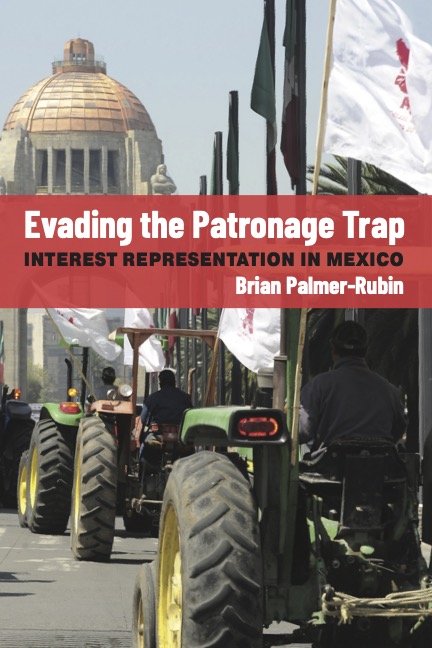Evading the Patronage Trap:
Interest Representation in Mexico
Book page at University of Michigan Press
Harold D. Lasswell Award for Best Dissertation in Public Policy (APSA)
Reviewed in Latin American Politics & Society, Perspectives on Politics, ReVista: Harvard Review of Latin America, Choice, New Books in Political Science
Latin America has long been recognized as the most unequal region in the world. Nonetheless, economic policies oriented to generate economic opportunity for the masses have been off the table for decades. Instead, economic elites dominate the policymaking process, producing economic institutions that magnify their own economic predominance, rather than spurring innovation or productivity gains or creating good jobs for ordinary citizens.
Why have Latin American democracies proven unable to confront the structural inequalities that cripple their economies and stymie social mobility? I contend that we may lay the blame on these countries’ systems of interest representation, which exhibit biased pluralism, a system in which the demands of economic elites—especially large corporations—predominate. A more inclusive model of representation would not only require a more encompassing and empowered set of institutions to represent workers, but would also feature spaces for non-elite producers—such as farmers and small-business owners—to have say in sectoral economic policies.
This book focuses on organizations representing such non-elite actors, and develops an account of biased pluralism in developing countries typified by the centrality of patronage—discretionarily allocated state benefits. Rather than serving as conduits for demand making about development models, political parties and interest organizations often broker state subsidies or social programs, augmenting the short-term income of beneficiaries, but doing little to improve their long-term economic prospects. When organizations become diverted into patronage politics, the economic demands of the masses go unheard in the policies that most affect their lives, and along the way, their economic interests go unrepresented.
My analysis draws on over 100 interviews, an original survey, and official government data, focusing on organizations in the small business and agricultural sectors operating in states governed by Mexico’s three major political parties (PRI, PAN, PRD). Some of these organizations manage to confer meaningful representation on their members, pushing for policies apt to spur economic opportunity, while others fall into the “patronage trap” and become specialized as brokers for discretionary government programs. I argue that these models of representation are explained by the types of relationships that interest organizations form downwardly (with their members) and upwardly (with political parties).

